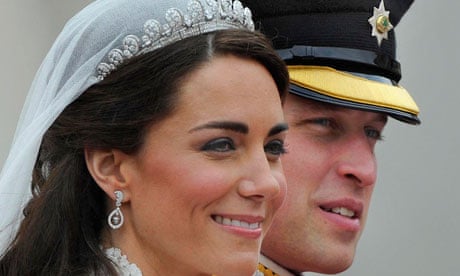The announcement that William and Kate are to be Duke and Duchess of Cambridge is very nice for Cambridge. This is the 10th time a member of the royal family has become an earl, marquess or duke of Cambridge. In the age-old contest of Oxford and Cambridge, it's one up for the latter university: Cambridge 1; Oxford 0.
But the link of names is not evidence of a constant and harmonious relationship. Relations between Cambridge and the monarchy have been about as stable as the average royal marriage (present company excluded, of course). In the Reformation and in the British revolutions of the 17th century, Oxford was always seen as the loyal university, Cambridge as the stroppy one. There were puritans in both universities, of course, but Cambridge puritans always seemed the noisier and more offensive and in Emmanuel College, Cambridge developed a veritable factory for the production of preachers intent on poking Stuart kings in the eye.
The city of Cambridge was the headquarters of the organisation of the war effort of the parliamentarians for the east of England; whereas Oxford was the headquarters for the royalist movement from 1643 to 1646. Oliver Cromwell was a Cambridge man (a member of the university and MP for the city of Cambridge), and he, more than any other, orchestrated the trial and execution of Charles I, and was installed as a non-royal head of state in 1657 while sitting on the royal throne above the stone of Scone.
When the monarchy was restored after the pretty disastrous attempt to do without it, Oxford soon became the centre for political toadyism, Cambridge for the Enlightenment version of political correctness. When attempts were made to exclude Charles II's brother and heir apparent from the succession on the grounds that he, James Duke of York, was a vile papist, the convocation of Oxford University ordered all the books that were beastly about monarchy to be publicly burned; Cambridge stayed mum.
Still, we must not take it too far. Cambridge has also benefited greatly from royal patronage and has been grateful for it. For 300 years, the favourite pilgrimage site of English monarchs was the shrine of Our Lady of Walsingham. Even Henry VIII was a big fan until his own marital difficulties got the better of him. And Cambridge was a splendidly convenient stopping-off point on the way to Walsingham. For a while after Henry VIII's acts of greed and vandalism had reduced Walsingham (as so many other glorious places) to rubble, Cambridge was less visited – but then monarchs and their families found another reason to stop over in Cambridge: its proximity to Newmarket, the shrine of horse-racing.
So monarchs have long been good for the city. But they have been even better for the university: both Oxford and Cambridge have Queens Colleges, but only Cambridge has a Kings College (in honour of Henry VI who began it and the early Tudors who completed it) and Henry VIII did at least disgorge some of his ill-gotten gains from the dissolution of the monasteries to found Trinity College (a favoured place for successive generations of royals to acquire a veneer of polite learning – including the late Edward VII and the new Duke of Cambridge's dad).
There was no such benevolence in Oxford: Trinity's equivalent, Christ Church, was created as Cardinal College by Henry's great and worldly chief minister Cardinal Archbishop Thomas Wolsey. And monarchs even created Regius professorships in the ancient universities and here Oxford (with eight) shades it; Cambridge only has seven (it was denied a Regius chair of ecclesiastical history – but note that Glasgow has 15). But while the position of chancellor of the university is largely honorary, it is prestigious and once more it is no contest: no member of the royal family has been chancellor of Oxford, whereas the spouses of Queens (Prince Albert, Prince Philip), minor royals and any number of royal bastards have graced the University of Cambridge as its chancellor.
So it is right and fitting for Prince William and his bride to be Duke and Duchess of Cambridge. It would never have done for them to be Duke and Duchess of Oxford.
